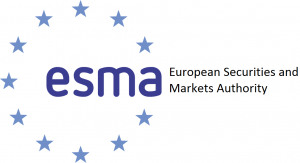Financial Services & Fintech
ESMA – Opinion to Harmonise Loan Origination by Funds
ESMA – Opinion to Harmonise Loan Origination by Funds
5 min read
 Author: Dr. Kurt Hyzler
Author: Dr. Kurt Hyzler
On the 11th of April, 2016, ESMA published an opinion addressed to the European Parliament, Council and Commission (“Opinion”) in which it proposed a common European framework for loan origination by investment funds and set out its view on the elements upon which the common European framework is proposed to be built.
It was noted by ESMA that, similar to Malta, various other Member States including Germany, Ireland, Spain and Italy have their own bespoke regulatory framework regulating loan origination by funds domiciled within their jurisdiction. It is thus inevitable that the number of debt funds continues to grow and, as a consequence, also regulatory arbitrage, or the abusive practice of shopping around for the best jurisdiction to obtain a licence to conduct such activity. The European Commission therefore asked ESMA to provide input on the key issues in view of the establishment of a common EU approach. After conducting a mapping exercise of the different national approaches and regimes with respect to such funds, ESMA concluded that a common framework is required in order to create a level playing field for funds.
Following the mapping exercise, elements which ESMA identified as being necessary for the common European framework included authorisation of loan-originating funds and their managers, eligible investors, organisational requirements and leverage. All such elements are already largely addressed by the loan fund regime which was launched in Malta just over 2 years ago by the Malta Financial Services Authority.
Under the Maltese rules for “funds investing through loans”, such funds may only be structured as closed-ended funds and may only be marketed to professional investors. The minimum investment level entry for an investor in these funds is €100,000. Additional requirements apply over and above AIFMD regime in areas such as credit assessment, liquidity provision, exposure limits and disclosure. Maltese loan funds may not lend to financial institutions or households. Moreover, leverage and reuse of collateral is not permitted.
Whilst the Opinion is specifically directed towards loan origination by investment funds, it does not refer to investment funds that participate in loans on the secondary market, such as credit funds. Malta’s loan fund regime, on the other hand, regulates the authorisation and ongoing conduct of both (i) funds which directly originate loans (ii) and also funds which acquire a portfolio of loans or a direct interest in loans in which acquisition gives rise to a direct legal relationship between the investment fund as lender and the borrower.
In its work on a common framework, ESMA noted that the Commission should look at the existing national approaches and regimes, as well as consider the exemptions for a number of fund types which are currently in place in Member States, such as for private equity funds, venture capital funds, or hedge funds. It also observed that the Commission should also consider introducing authorisation for funds and their managers, allowing national authorities to assess their capabilities and monitor any impact on systemic risk as this this will help to protect the interests of both borrowers and investors. More specifically, ESMA noted in the Opinion that loan-originating investment funds should:
- be closed-ended, without the right to redeem on a regular basis;
- not be permitted to have shorter liabilities than the loans they have originated;
- not be permitted to originate loans for a period that will exceed the life of the investment fund;
- be required to have specific policies, processes and procedures to govern (for example) risk appetite; risk management; the assessment, pricing, granting and management of credit; and the management of collateral;
- be required to have sufficient level of liquidity to which is appropriate to their activities;
- be required to conduct regular stress tests in accordance with a bespoke stress test programme, and to report the results to the manager (“preferably on a quarterly basis”); and
- not be permitted to lend to individuals, financial institutions, collective investment schemes, their own fund manager and any party related to the investment fund or manager such as the depositary, general partner etc.
As the UCITS Directive prohibits UCITS management companies and investment companies from granting loans or acting as a guarantor, loan origination by funds is only possible for Alternative Investment Funds as defined under the AIFMD. Therefore ESMA observed that any common framework could be achieved through a legislative instrument supplementing the AIFMD or even through a standalone legislative proposal. This sits well with the Maltese loan fund regime where loan funds may either be licenced as Professional Investor Funds (“PIFs”) and Alternative Investment Funds (“AIFs”), both of which fall within the definition of Alternative Investment Funds in terms of the AIFMD.
Whilst the European Commission has not as yet publicly acknowledged or responded to the Opinion, it should be calling for a consultation on the proposed common European loan origination framework (and any new legislation) later this year. ESMA has encouraged the European Commission to include the components identified in its Opinion into the said framework.
We would be delighted to provide you with assistance and bespoke advice on the options available in Malta in order to better structure your investment fund. For further information about how GVZH Advocates can help you with your financial services requirements kindly contact us on finance@gvzh.mt.